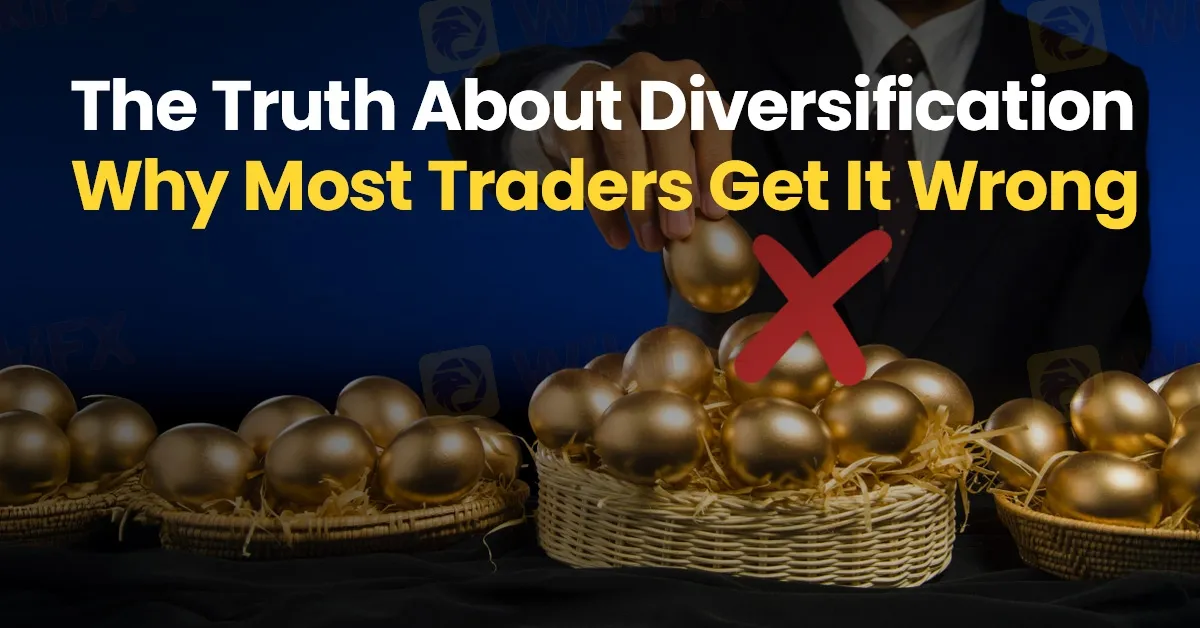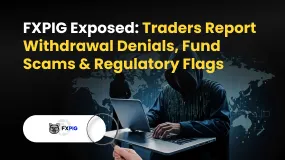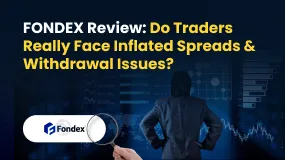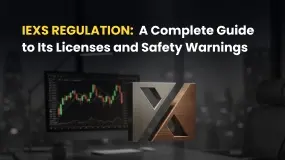简体中文
繁體中文
English
Pусский
日本語
ภาษาไทย
Tiếng Việt
Bahasa Indonesia
Español
हिन्दी
Filippiiniläinen
Français
Deutsch
Português
Türkçe
한국어
العربية
The Truth About Diversification: Why Most Traders Get It Wrong
Abstract:Diversification is often hailed as the holy grail of risk management, a strategy that every trader and investor should adopt to protect their portfolio. But the reality is that many traders misunderstand the concept, believing that simply holding multiple assets equates to lower risk. So, how can diversification be done the right way? Let’s uncover the common misconceptions and explore professional strategies to ensure risk is truly mitigated.

Diversification is often hailed as the holy grail of risk management, a strategy that every trader and investor should adopt to protect their portfolio. But the reality is that many traders misunderstand the concept, believing that simply holding multiple assets equates to lower risk. In truth, poor diversification can do more harm than good, leading to inefficiencies, unnecessary exposure, and a false sense of security. So, how can diversification be done the right way? Lets uncover the common misconceptions and explore professional strategies to ensure risk is truly mitigated.

One of the most common mistakes traders make is over-diversification—spreading capital across too many instruments without a clear strategy. While it might seem logical to hold a mix of forex pairs, stocks, commodities, and cryptocurrencies, blindly adding assets without understanding their correlations can dilute returns rather than reduce risk. If a traders portfolio is too broad, it becomes difficult to manage effectively, often resulting in exposure to multiple assets that react similarly to market conditions.
Another pitfall is false diversification, where traders believe they are reducing risk simply by holding different assets, but in reality, those assets are highly correlated. For instance, a portfolio consisting of EUR/USD, GBP/USD, and AUD/USD might appear diversified because it involves different currency pairs, but all three are majorly influenced by the strength of the US dollar. Similarly, holding multiple tech stocks may seem diversified, but if the sector experiences a downturn, all holdings could suffer simultaneously.
Lastly, many traders ignore liquidity and volatility when diversifying. Some assets may be difficult to exit in times of market stress, while others may have extreme price swings that amplify risk rather than mitigate it. Simply holding a variety of instruments does not guarantee stability if those instruments behave erratically under pressure.

To achieve effective diversification, traders must move beyond the simplistic notion of owning multiple assets and instead focus on strategic diversification. This means selecting instruments that have low or negative correlations, ensuring that when one asset declines, another remains stable or appreciates.
A professional approach involves sector and asset-class diversification. Instead of clustering investments within a single sector or currency group, traders should consider exposure across equities, fixed income, commodities, and forex markets, ensuring that their portfolio can withstand different economic cycles.
Another key element is timeframe diversification. Many traders focus solely on short-term trades, exposing themselves to immediate market fluctuations. By incorporating a mix of intraday, swing, and longer-term positions, they can hedge against unexpected volatility while capturing opportunities across different time horizons.
Risk-adjusted diversification is also crucial. Traders should allocate capital based on risk exposure rather than equally distributing funds across assets. For example, a 10% allocation to a highly volatile cryptocurrency does not carry the same risk as a 10% allocation to a stable government bond. Using risk-weighted position sizing ensures that higher-risk assets do not disproportionately impact the portfolio.
Diversification, when done correctly, is a powerful risk management tool; but when misunderstood, it can lead to unnecessary complexity and hidden risks. True diversification is not about owning more assets; it‘s about owning the right assets. By focusing on correlation, asset-class balance, timeframes, and risk-weighted allocation, traders can build a portfolio that is genuinely resilient rather than just broadly spread. In the ever-changing landscape of financial markets, understanding diversification the right way is not just a choice—it’s a necessity.

Disclaimer:
The views in this article only represent the author's personal views, and do not constitute investment advice on this platform. This platform does not guarantee the accuracy, completeness and timeliness of the information in the article, and will not be liable for any loss caused by the use of or reliance on the information in the article.
Read more

FXPIG Exposed: Traders Report Withdrawal Denials, Fund Scams & Regulatory Flags
Do you face massive losses due to astonishing spreads at FXPIG? Have you witnessed multiple trade executions by the Georgia-based forex broker even though you wanted to execute a single order? Has this piled on losses for you? Is the FXPIG withdrawal too slow? Maybe your trading issues resonate with some of your fellow traders. In this FXPIG review article, we have shared these issues so that you can introspect them thoroughly before deciding on the best forex trader.

Does WealthFX Generate Wealth or Losses for Traders? Find Out in This Review
The name WealthFX sounds appealing for all those wishing for a rewarding forex journey. However, behind the aspiring name are multiple complaints against the Comoros-based forex broker. These trading complaints dampen the broker’s reputation in the forex community. In this WealthFX review article, we have shared some of these complaints here. Take a look!

FONDEX Review: Do Traders Really Face Inflated Spreads & Withdrawal Issues?
Does FONDEX charge you spreads more than advertised to cause you trading losses? Does this situation exist even when opening a forex position? Do you witness customer support issues regarding deposits and withdrawals at FONDEX broker? Does the customer support official fail to explain to you the reason behind your fund loss? In this article, we have shared FONDEX trading complaints. Read on!

IEXS Regulation: A Complete Guide to Its Licenses and Safety Warnings
When choosing a broker, every trader's biggest concern is safety and trust: is it regulated? For IEXS, the answer isn't simply YES or NO. While the company says it's regulated by trusted authorities, looking closer shows a complicated and worrying situation with mixed evidence and serious risks. What they claim on the surface doesn't match up with official warnings, license problems, and many bad user experiences. This article gives you a detailed, fact-based look into IEXS regulations, breaking down their official licenses, what their trading platform is really like, and real stories from traders who have used it. Our goal is to give you the facts so you can make a smart decision about keeping your money safe.
WikiFX Broker
Latest News
150 Years Of Data Destroy Democrat Dogma On Tariffs: Fed Study Finds They Lower, Not Raise, Inflation
The Debt-Reduction Playbook: Can Today's Governments Learn From The Past?
FIBO Group Ltd Review 2025: Find out whether FIBO Group Is Legit or Scam?
Is INGOT Brokers Safe or Scam? Critical 2025 Safety Review & Red Flags
Trillium Financial Broker Exposed: Top Reasons Why Traders are Losing Trust Here
Amillex Withdrawal Problems
IEXS Review 2025: A Complete Expert Analysis
IEXS Regulation: A Complete Guide to Its Licenses and Safety Warnings
Oil and gas giant Wood plc sold to Dubai engineering firm
FONDEX Review: Do Traders Really Face Inflated Spreads & Withdrawal Issues?
Currency Calculator




